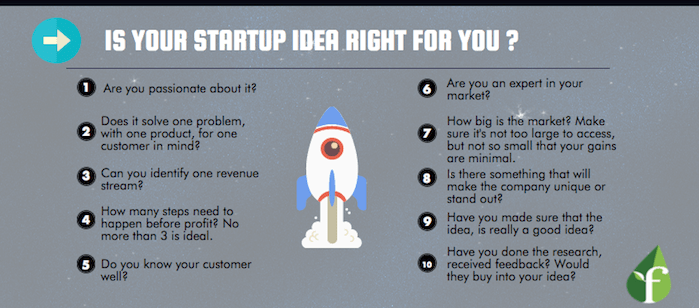Do you want your own company to start, but you don’t know how to start?
Many reports reveal the complete absence of a brilliant idea to deter aspiring entrepreneurs. This blog offers information about how to grow and test the ideas of startup companies.
We have a few ideas:
startup
Sector learning:
While several future entrepreneurs have no clear ideas, the business that is of greatest concern knows them. Whether they are an company that has its entire existence or a new industry.
The first step towards creating a good start-up is to take your target industry into account.
The first step towards new companies is to find a non-met customer need in a sector; by using your experience in the industry, it will help you recognize this need.
Conference and questioning with people:
The best way to develop an idea for a new company is to focus on what people want. Most organizations are trying to build a new need instead of concentrating on meeting an existing need. If the solution to the question is simpler , faster, cheaper or better for your customers, your startup will be more probable than one that already has no target market.
Please ask them to recognize their challenges. Connect to your target market and get to know people.
Please take a break:
If you know the problems your target market is facing, it’s time for you to stop. Relax and think about other things deeply. It is an important step in the creation of a successful concept. Research reveals that people are more likely to find innovative solutions to the issue.
The pause from productive thought about your business helps you to go back, arrange your acquired information and interact with another experience. Believe it’s wisdom, but don’t try to push you.
Identify an problem or necessity:
Using the data you gather to define a problem or condition that you do not fulfill in developing your ideas.
First, it is also the best way to begin by creating a business idea for anything that you have encountered personally because you have an insight into the matter. There must be a better solution. When you have a remarkable skill or enthusiasm, it might become the seed of the market. Your potential solution to a personal problem or escape may also be the cornerstone of a new company.
read more : How social media functions in the growth of business in 2023
Brainstorm — not as precious as you might think:
For many people brainstorming is negative. This word refers to pictures from middle school English classes or a wrongheaded corporate event in which time was lost.

Set a stake on the ground:
An exciting but difficult journey is the beginning of a new company. After having thought about the strengths and weaknesses of your ideas.
Identify a Problem: The first step in generating ideas for a new startup is to identify a problem that needs to be solved. Think about areas where you have expertise, experience or a passion, and look for gaps in the market where you could make a difference.
Brainstorm: Start generating ideas by brainstorming. Write down every idea that comes to mind, no matter how crazy or outlandish it may seem. Use mind mapping techniques or other brainstorming methods to get your creative juices flowing.
Research: Once you have a list of potential startup ideas, do some research to determine if there is a market for your idea. Look for competitors, assess the level of demand for your product or service, and determine if there is a viable business model.
Evaluate: Once you have done some research, evaluate each idea based on its potential for success. Consider factors such as market demand, competition, scalability, and profitability.
Test: Test your ideas by talking to potential customers, conducting surveys, or building a prototype. Get feedback from others and use this information to refine your idea.

Develop a Business Plan: Once you have a solid idea for your startup, develop a business plan that outlines your vision, mission, and strategy. This plan should also include a detailed financial plan, marketing plan, and operational plan.
Secure Funding: Finally, secure funding for your startup by pitching your idea to investors, crowdfunding, or bootstrapping. Be prepared to show how your startup will be profitable and how you plan to use the funds to grow your business.
Create a Brand: Develop a brand that sets your startup apart from the competition. Your brand should convey your values, mission, and vision, and should be consistent across all marketing and communication channels.
Build a Team: Assemble a team of talented individuals who can help you bring your startup to life. Look for people with complementary skills and a shared passion for your vision.
Leverage Technology: Use technology to your advantage by incorporating it into your business model. Look for ways to streamline processes, automate tasks, and improve efficiency.
Seek Mentorship: Find mentors who can provide guidance, advice, and support as you navigate the challenges of starting a new business. Look for people who have experience in your industry or who have successfully launched their own startups.
Stay Agile: Remain flexible and agile as you launch your startup. Be open to pivoting your strategy or adapting to new challenges as they arise.
Focus on Customer Experience: Prioritize the customer experience by delivering high-quality products or services and providing exceptional customer service. Look for ways to go above and beyond to exceed customer expectations.
Network: Build relationships within your industry by attending conferences, joining professional organizations, and connecting with other entrepreneurs. These connections can provide valuable insights and opportunities for collaboration.
Stay Committed: Starting a new startup can be challenging and requires a high level of commitment. Stay focused on your vision, stay motivated, and persevere through the inevitable setbacks and obstacles.



